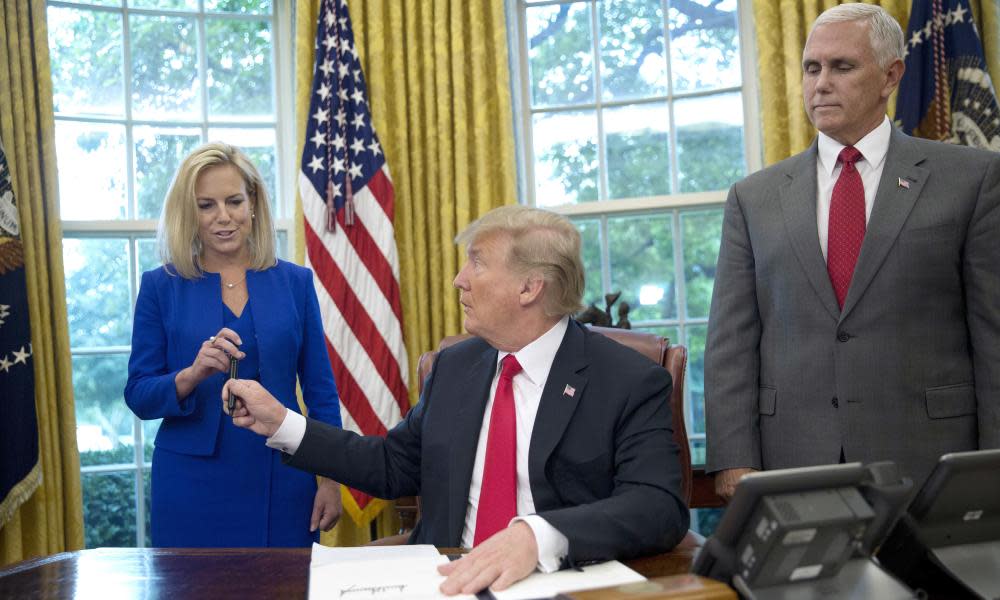Child separations: what does Trump's order actually mean?

What does the executive order signed by Donald Trump mean?
While Trump has said he does not like seeing families separated, the practical impact of his executive order remains highly confusing, not least for some 2,300 children who have already been caught up in the “zero-tolerance” policy announced by the attorney general, Jeff Sessions, in April.
In theory, the intent of the executive order is to keep children who have crossed the border with their parents while in custody. However, the order is likely to face a swift legal challenge – as the White House has itself suggested – over an existing ruling that says children may not be held in detention for more than 20 days.
Privately, officials in the Department of Homeland Security (DHS)believe there is not enough capacity to hold families together because its facilities are already full. This will leave the Trump administration in the same position as that of Barack Obama during a similar spike of families at the border in 2014.
What does this mean for children already separated?
It is unclear what will happen to the children already separated, though some DHS officials have suggested there is no provision for including them in the ruling. Both court officials and the DHS appear unsure about how family reunification will be achieved. Some critics have suggested the policy of separation may have already “orphaned” a number of children from their parents.
Does this mean Trump has backed down?
All the evidence suggests the Trump administration was using its toxic policy as leverage to try to persuade Congress to pass immigration legislation, including funding for Trump’s controversial wall on the Mexican border. In that sense it is a huge defeat for Trump, not least because of the deep Republican divisions over the shape of any immigration bill. Trump is insisting, however, that the zero-tolerance policy will remain, suggesting more controversies and battles lie ahead.
Some prominent critics are also wondering whether Trump’s slapdash order – which managed to misspell the word “separation” – will make much difference. The Democratic leader in the House of Representatives, Nancy Pelosi, believes Trump’s order does nothing but “replace one form of child abuse with another … Instead of protecting traumatised children, the president has directed his attorney general to pave the way for the long-term incarceration of families in prison-like conditions.”
And according to the Washington Post, the DHS secretary, Kirstjen Nielsen, told politicians during a private briefing that the family separations could resume if they fail to pass legislation.

 Yahoo News
Yahoo News 
